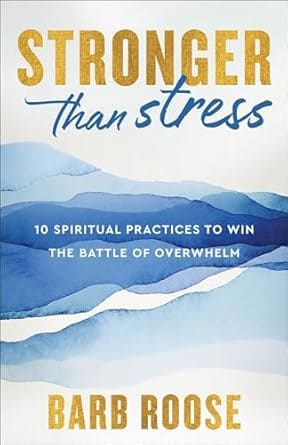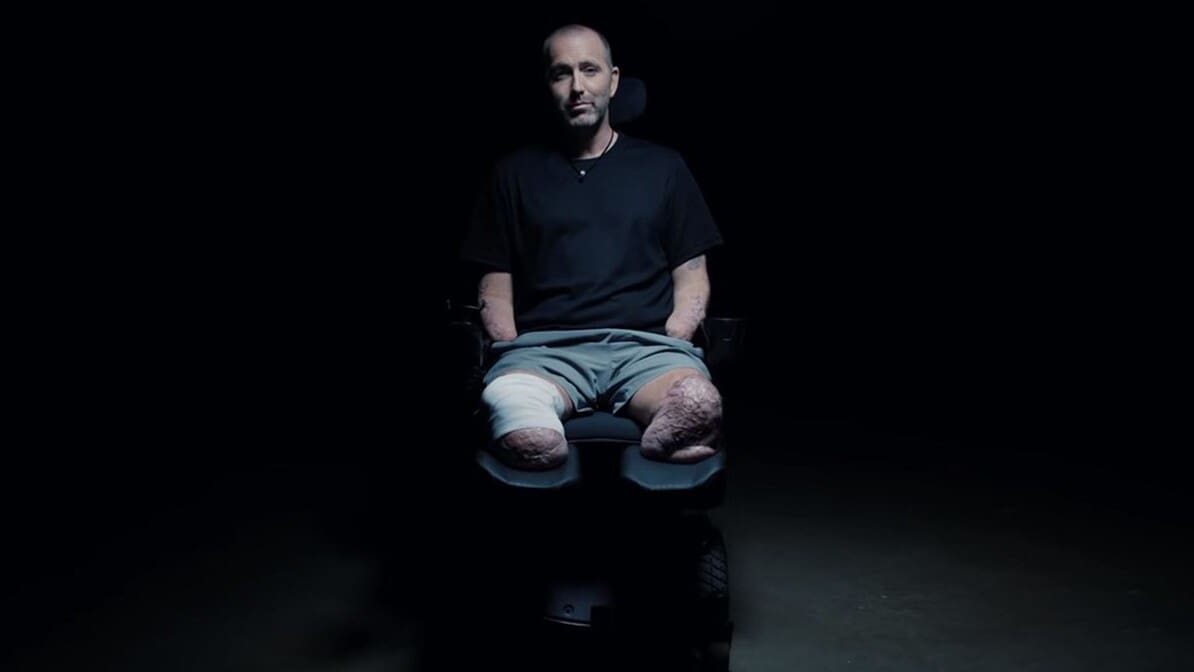
Give Me a Break
Chapter 1
Give Me a Break
I didn’t realize that I’d thrown those dinner plates through my kitchen window until the sound of shattered glass snapped me back into reality. Even before I fully surveyed the glass and porcelain carnage, my mind’s public relations office worked to spin the disaster: Ohhhh, that’s not good. Yikes, you can’t walk that back, honey. Think. How do we explain this without admitting what really happened? Can you tell your neighbors that those plates just happened to slip out of your hands?
Those plates did not slip out of my hands, unless slipping looks a lot like Nolan Ryan firing off a fastball from the pitching mound. When I opened the back door to what looked like a crime scene after a home robbery, I realized I had tossed more than a few plates. I’d also fired off several forks, a mixing bowl, my salad colander, and a classic white Corelle coffee mug, which blessedly honored its no-break guarantee. At least there was that.

While that mug didn’t break, it was time to admit that I finally had.
My overwhelm had overcome me. It had broken me. It wasn’t the first time. This was just the messiest, most embarrassing time.
I raced up the steps and threw myself on the loveseat in my TV room. My cheeks flamed with the shame of failure. I never thought that I’d go over the edge like that, but I should have known. Parenting, work, household, grief, a loved one’s addiction, car troubles, struggling kids. Again, I should have known.
Ohhh, the neighbors . . . My cheeks warmed again from embarrassment. I made it clear to everyone around me that I was a Christian. They knew that I worked for my church. Christian women aren’t supposed to throw plates through their kitchen window. What have I done? God, did I totally embarrass You? Like Adam and Eve in the garden, I wanted to hide. I knew that God loved me, but if I were Him, I’d be disappointed in me for losing all self-control in a most spectacular way.
The heaviness followed me back downstairs to revisit the scene of the crime. Tears fell as I swept up the evidence of my stressed-out life. I sagged against the wall as I reclimbed the steps to cry on the loveseat again. I’d cleaned up the mess, but I had no idea how to clean up the mess that had become my life.
God, I’m overwhelmed and I don’t know what to do.
What Is Overwhelm?
I begin our journey together by telling my story so that if you’re wondering how your life became so hard, complicated, and confusing, you’ll know you’re not alone. It’s so hard waking up and knowing that you’re doing the best that you can when it feels like you’re falling further behind and falling apart more every day.
A common dictionary description of overwhelm is a sensation of being buried or drowning, feeling defeated, and being unable to know what to do next.¹ But here is my practical definition of overwhelm: having too much to do with not enough time to do it, and feeling unsure, paralyzed, or stuck on how to fix it or move forward.
Overwhelm is something that we sense before we can name it. I can be busy and doing just fine, but then I remember that I need to transfer money from one bank to the next before 5 p.m. That requires a phone call and waiting indefinitely for customer service. I don’t have time for that. I also need to pick up a prescription at some point between my three Zoom calls. I should have transferred the money a week ago, so I beat myself up for procrastinating. One of those Zoom calls is about a problem that someone is depending on me to solve, but I don’t have the answers. While I’m sorting through all that and attempting to fill in my right eyebrow (which never turns out as good as my left eyebrow), one of the kids asks to borrow my car. I stare at myself in the bathroom mirror.
Then, I feel it. The start of a pit in the middle of my stomach. Two words come to mind: Oh no.
This is overwhelm.
It’s complex. It’s a chaos of details, emotions, and overload that demands your attention, but you don’t know what to do with it. The inability to sort out your overwhelm terrifies you because so much is at stake in your life. You can’t afford to mess things up, and you’ve got to figure it out before it’s too late.
My hope is to meet you in that space with the love of Christ and the guiding light of God’s truth. Deep breath, my friend. If God led you to these pages, then He knows how to take care of you and handle things while you sort through your overwhelm.
I’ve been there. A few times. There is a path to the other side of your overwhelm. What you’ll learn here will not only give insight into what’s going on inside you but will help you know how to stop the spinning, grab God’s hand, and let Him lead you to the other side where you can experience His peace, joy, and victory.
Overwhelm as an Internal Emotion
Overwhelm is a mixture of emotions and experiences, but there are no precise measurements. The recipe for overwhelm is a pinch of this and a “teense” of that (a Southern way of saying tiny or teensy). It’s not precise, but it’s accurate nonetheless, like my grandmother’s way of cooking intuitively without a recipe.
To help you remember the elements of overwhelm, I developed the acronym CATS, which is funny for me because I am a dog person. When it comes to overwhelm, CATS stands for control, anxiety, time, and stress. For my own life, when that pit starts in my stomach, I ask myself which of these are in play. You can use this as a diagnostic tool in your battle to help you identify overwhelm in the future.
C— Control
• Too Little Control: One’s inability to manage or change the situation
Your ability to manage or change the situation is an important factor in the extent to which you’ll experience overwhelm. The less control that you have or feel like you have, the easier it will be for you to feel overwhelmed.
If all four tires on your car need to be replaced and you have the money in your account, this will likely cause annoyance for an out-of-service car, but not overwhelm. But if you’re already behind on your bills, your mind may start spinning on not only the repair bill but how you will handle the other bills. That will spark worries about taking care of yourself and others.
There’s also a hidden layer within the level of control. I’ve heard it described as active challenge and passive challenge.² Active challenges are the complex circumstances you choose to pursue, such as going back to college, building a house, or starting a business. When you say yes to those opportunities and the pressure builds, you can still feel overwhelmed, but you are likely to be more positive and hopeful toward your overwhelm because you agreed to it. Passive challenges are circumstances that are thrust on you and you had no say in them, whether it’s having parents who struggled with addiction, a spouse’s infidelity, a job layoff, or a health crisis. This form of overwhelm can create more distress and hopelessness since you had no choice in the matter but are left to find your path through it.
A— Anxiety
• Too Much Anxiety: Fear for your safety or fear of the unknown
This is the emotion that we associate most often with overwhelm. Anxiety describes both our state of mind and our emotional reaction. It’s also how we describe our undefined fears. Anxiety asks questions like “Will I be okay?” or “What if something bad happens to me?” or “Can someone tell me what will happen?”
There are two parts to anxiety: physical and mental. Physical expressions of anxiety include a racing heartbeat, sleeplessness, nausea, upset stomach, anger, shaky hands, irritability, or frequent crying. The mental layer of anxiety is worry. This includes overthinking, distraction, or fixating on worst-case scenarios, which I call WorryFlix.³
If you lost your job but had six months of savings in your checking account, you’d be less likely to move toward overwhelm. You’d feel some level of safety and security in knowing that you’d have a roof over your head and food to eat. In another example, if the doctor diagnoses you with a chronic illness and advises you to change jobs, the questions about your quality of life and ability to provide for yourself would understandably generate anxiety that would contribute to overwhelm.
T— Time
• Too Little Time: Not enough hours and minutes to accomplish tasks
Raise your hand if you tend to be overly optimistic about what you can accomplish on any given day. Both of my hands are up.
Buses, trains, and airlines run on a schedule. Our lives do not, but we live like they do and we’re always up against a clock. It’s like the music to Final Jeopardy plays in our minds all the time. We need to make a move, make a decision, make it to an appointment, or make something right, but there never seems to be enough time.
Unfortunately, we don’t do ourselves any favors by not accounting for the inevitable time sinks such as having an extra-slow cashier at the grocery store, waiting on others, forgetting to put gas in the car, or the baby having a blowout diaper before we leave the house.
When you don’t have enough time and then you lose control over the time that you do have—well, that’s a big push toward overwhelm.
S— Stress
• Too Much Stress: Anything that you perceive as threatening or adding pressure to your life.
Stress is the body’s internal response to external pressure. In the next chapter, we’re going to break down stress because it’s an important player in overwhelm. When stress is sustained for too long, our bodies will swing toward overwhelm because there’s a sense that something has been going wrong for a long time and we haven’t been able to fix it.
CATS is a description of the factors of overwhelm. However, I did not address certain conditions like trauma, mental health disorders, chronic illness, and grief. These are important factors that can predispose one to overwhelm, accelerate overwhelm, or make it difficult to treat. If you know that one of these conditions is contributing to and increasing your overwhelm or is making it difficult for you to concentrate on the spiritual practices discussed in this book, then this is where I highly recommend having a mental health professional join you in this journey.
…
Order your copy of Stronger Than Stress: 10 Spiritual Practices to Win the Battle of Overwhelm by Barb Roose
Trending Now
Sign up today for your Inspiration Today Daily Newsletter
Supercharge your faith and ignite your spirit. Find hope in God’s word. Receive your Inspiration Today newsletter now!
Barb Roose
Barb Roose is a popular speaker and author who is passionate about teaching women to live beautifully strong and courageous in spite of their fears so that they can experience God’s great adventure of faith and purpose for their lives. Learn more at barbroose.com
Related Articles
January 28, 2026
I Just Knew It Was God: From Searching to Finding Faith
From the outside, Ekaterina’s life looked successful. She had a college degree, a strong career,…
January 26, 2026
How to Overcome Old Wounds with Resilience
How Do You Deal with Old Wounds? Everyone is talking about trauma, but very few are talking about…
November 21, 2025
Thank You … Lord
Gratitude transforms our lives and draws us closer to God. This article explores how practicing…
October 27, 2025
So, Is God Good?
Many people wrestle with the question, is God good, especially when life brings pain and loss.…
Next Steps To Strengthen Your Walk
Inspiration Today Newsletter
Supercharge your faith and ignite your spirit. Find hope in God’s word. Receive your Inspiration Today newsletter now!
Christian Articles
Find articles to strengthen your walk and grow your faith. We have a wide range of topics and authors for you.
Submit A Prayer Request
We are here for you. Simply click on the button below to reach us by form, email or phone. Together we will lift our hearts and voices with you in prayer.





